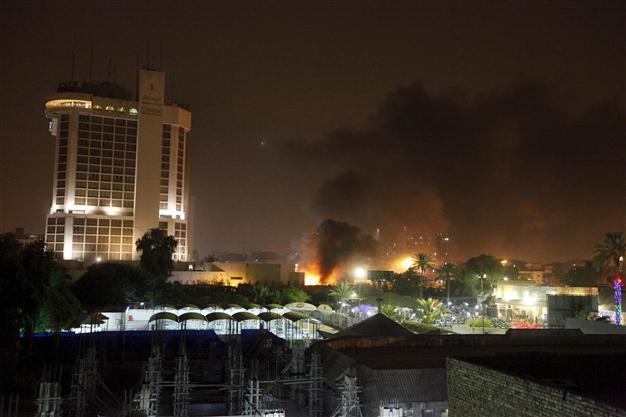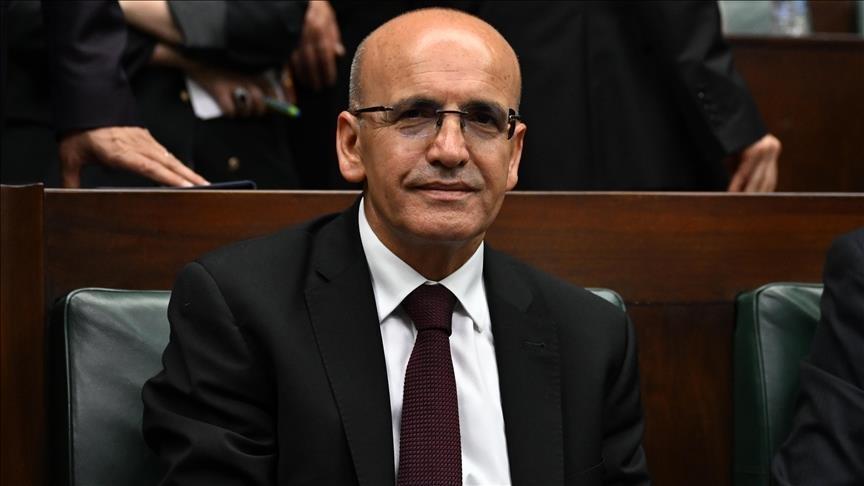Car bombs at Baghdad hotels kill at least nine: Officials
BAGHDAD - Agence France-Presse

Smoke rises from the site of car bomb attack in Baghdad, May 29, 2015. Reuters Photo
The toll from car bombs that ripped through the car parks of two upscale Baghdad hotels has risen to at least nine killed and dozens wounded, officials said on May 29.Militants were able to bring the bombs, which exploded just before midnight (2100 GMT) on May 28 and were heard across the city centre, inside the walled compounds of the Ishtar and Babylon hotels in central Baghdad.
The blast at the Ishtar -- formerly a Sheraton -- shattered windows of the recently renovated hotel, turning rows of expensive cars and SUVs into charred, twisted metal.
People traipsed through the site of the blast, while a group of men struggled to remove the smashed windshield from an SUV on the other side of the hotel.
The Ishtar is a popular site for wedding celebrations, and the area -- which also includes a club and the Palestine hotel -- is crowded with people on Thursday nights.
A second bombing struck the car park at the Babylon, another upmarket and recently refurbished hotel that overlooks the Tigris river in the Jadriya neighbourhood.
Police said security forces found another car bomb in the Babylon's car park and defused it.
A years-old midnight curfew was lifted in February after Iraqi forces retook areas around Baghdad from the Islamic State of Iraq and the Levant (ISIL) jihadist group and a huge car bomb-making cell was dismantled.
Attacks have continued since but are less frequent than in 2014.
ISIL, which is still battling government forces barely 30 kilometres (18 miles) west of the capital, has claimed many of the biggest attacks in Baghdad and elsewhere in the country.
The Babylon and Sheraton were hit in coordinated attacks in January 2010, together with the Hamra, which never reopened.
The attacks five years ago were carried out by suicide bombers and killed at least 36 people. They were claimed by Al-Qaeda in Iraq, the group that later became ISIL.
















